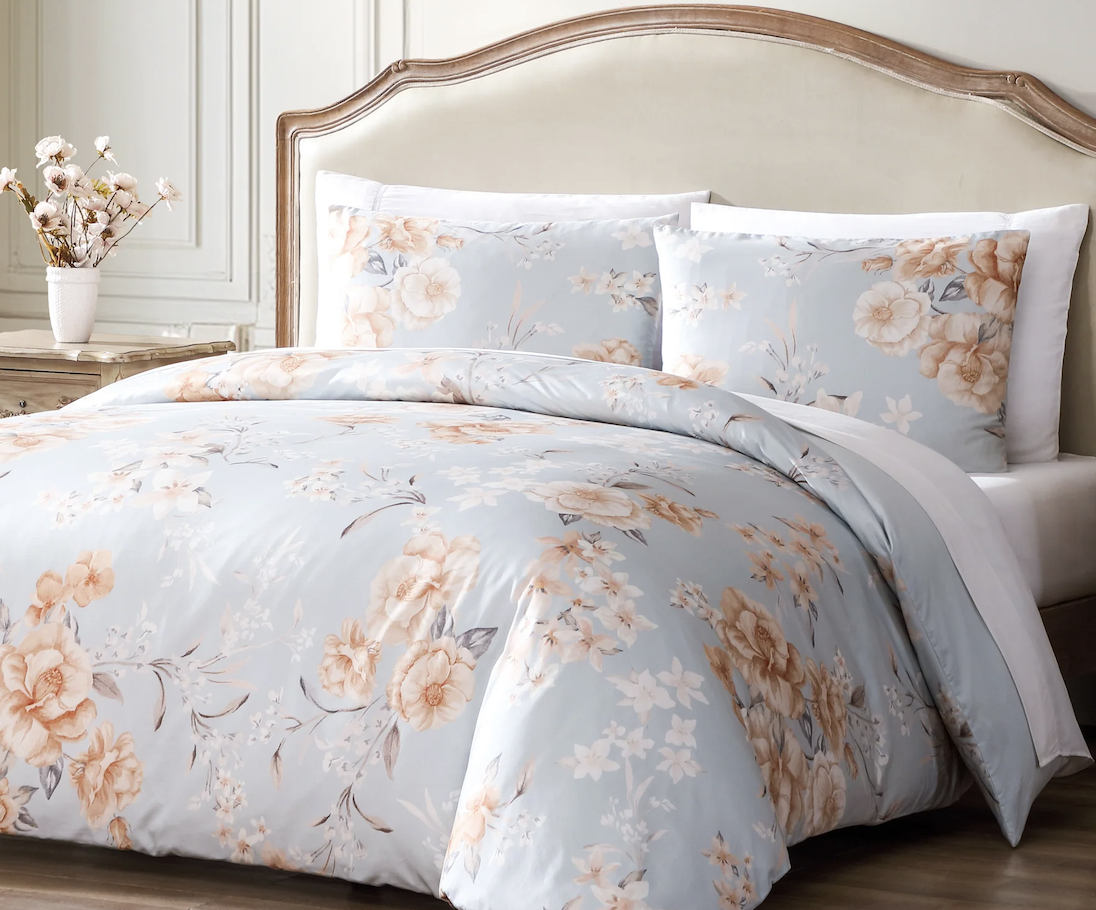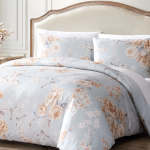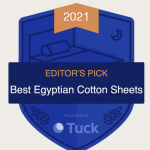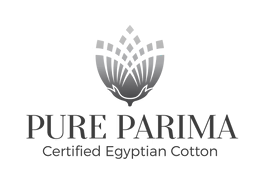Introduction: Types of High-Quality Cotton
The difference between Egyptian cotton and Pima cotton lies in their fiber length - Egyptian cotton has longer fibers for unmatched softness and durability, while Pima cotton offers similar quality at a more affordable price.
Both Egyptian and Pima cotton are considered premium cotton options. You will find these revered materials in high-end hotels and luxury bedding outlets. Once you feel the quality, there is no going back.
The big question remains: What is the real difference between Egyptian and Pima cotton?
Pure Parima, an industry-leading brand of Egyptian Cotton bedding and bath options, is here to break down exactly what distinguishes the two materials and why we believe Egyptian Cotton remains the best investment in luxury bedding.
Key Takeaways: Egyptian vs. Pima Cotton
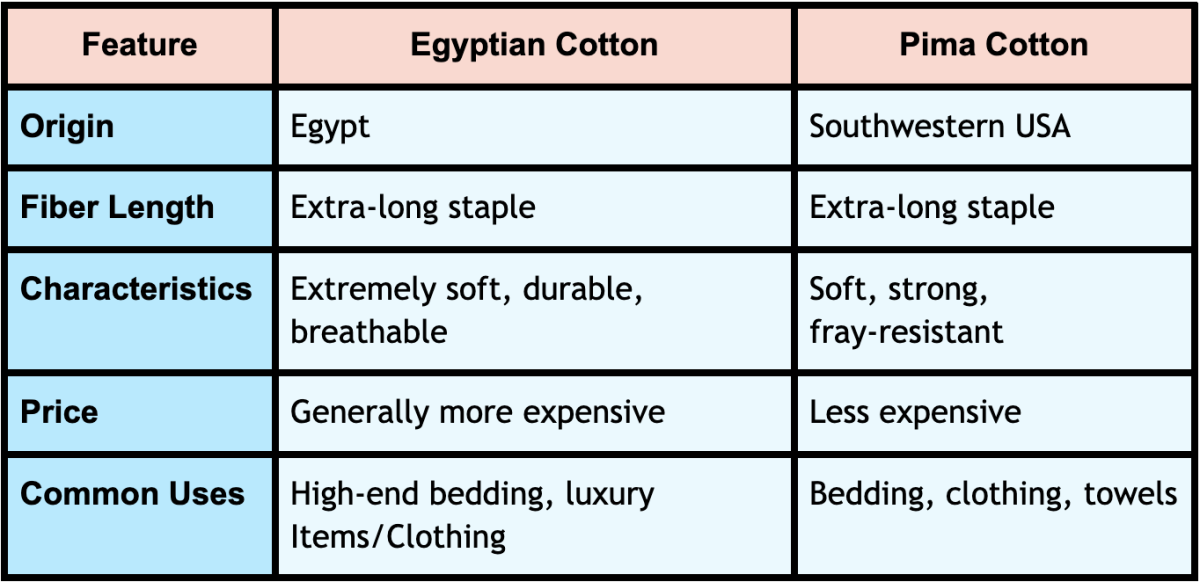
What is Egyptian Cotton?
Egyptian cotton comes from the fertile Nile River Valley. The climate there produces extra-long staple fibers that are longer and finer than typical cotton, making the fabric softer and more durable.
Egyptian cotton is also hand-picked. Avoiding machine harvesting keeps the fibers intact and free from stress, contributing to their superior quality.
The allure of Egyptian cotton lies in its extraordinary softness and strength. The extra-long fibers create smoother, stronger yarns that enhance the fabric’s overall durability.
Egyptian cotton is also highly breathable. Better air circulation means better temperature regulation during sleep.
Additionally, its ability to absorb dyes exceptionally well means it retains vibrant colors even after many washes.
The real trick to identifying the real deal is to check for certifications.
All Pure Parima is Certified Egyptian Cotton - over half of the products on the market falsy claim to be Egyptian Cotton.
What is Pima Cotton?
Pima cotton is primarily grown in the southwestern United States - although its origins trace back to Peru.
Like Egyptian cotton, Pima cotton boasts extra-long staple fibers that contribute to its softness and strength. The growing conditions in these regions and advanced agricultural techniques result in high-quality cotton that rivals its Egyptian counterpart.
Pima cotton is known for its silky feel and exceptional durability. Its fibers are strong, making it resistant to fraying, tearing, and fading. This makes Pima cotton a practical choice for everyday use. The fabric made from Pima cotton is smooth and soft against the skin and provides a comfortable and long-lasting option for bedding and clothing.
Key Differences Between Egyptian Cotton and Pima Cotton
Fiber Length
Egyptian cotton fibers are known for their extra-long staple length, which typically ranges between 1.5 to 2 inches. This length contributes to the fabric's softness, durability, and high thread count.
Pima cotton also has extra-long fibers, but they are generally shorter than Egyptian cotton, measuring about 1.4 to 1.6 inches.
Egyptian cotton's longer fibers result in a smoother and more luxurious fabric, while Pima cotton, though slightly shorter, still offers a high level of softness and durability.
Geographic Origin
Egyptian cotton is exclusively grown in the Nile River Valley. This region has a unique climate and rich soil conditions needed to produce its superior fibers. The combination of warm temperatures, high humidity, and fertile soil allows for optimal growth of the cotton plants.
On the other hand, Pima cotton is primarily grown in the southwestern United States, as well as parts of Australia and Peru. The arid climate and advanced agricultural practices in these regions support the growth of high-quality cotton, though the environmental conditions differ significantly from those in Egypt.
Cost and Availability
When it comes to cost, Egyptian cotton is typically more expensive than Pima cotton. This price difference is due to the labor-intensive harvesting process and the superior quality of the fibers.
Egyptian cotton is often considered a luxury product and is used in high-end bedding and apparel. In contrast, Pima cotton is more widely available and generally less expensive.
Pros and Cons of Egyptian Cotton
Pros:
- Exceptional softness and durability
- Long fibers produce a smoother, more lustrous fabric
- Highly breathable, enhancing sleep comfort
- Absorbs dyes well, ensuring vibrant, long-lasting colors
Cons:
- High Cost: Egyptian cotton is usually more expensive than other cotton types.
- Special Care Required: It requires gentle washing to maintain its quality.
- Availability: Genuine Egyptian cotton can be harder to find.
Pros and Cons of Pima Cotton
Pros:
- Known for its softness and strength
- Offers a luxurious feel at a lower price point compared to Egyptian cotton
- Long fibers create a smooth fabric that resists fraying, tearing, and fading
Cons:
- Price Fluctuations: Prices can vary based on availability and demand.
- Quality Variation: There can be inconsistencies in quality depending on the source.
- Less Prestige: It is often considered less prestigious than Egyptian cotton, though it still offers excellent quality.
How to Choose Between Egyptian Cotton and Pima Cotton
Choosing between Egyptian cotton and Pima cotton depends on several factors: your budget, personal preference, and intended use.
If you prioritize ultimate luxury and are willing to invest more, Egyptian cotton is the way to go. Its unparalleled softness and durability make it ideal for high-end bedding.
On the other hand, if you seek a balance of quality and affordability, Pima cotton is a great choice. It offers excellent softness and strength - great for both everyday use and special occasions.
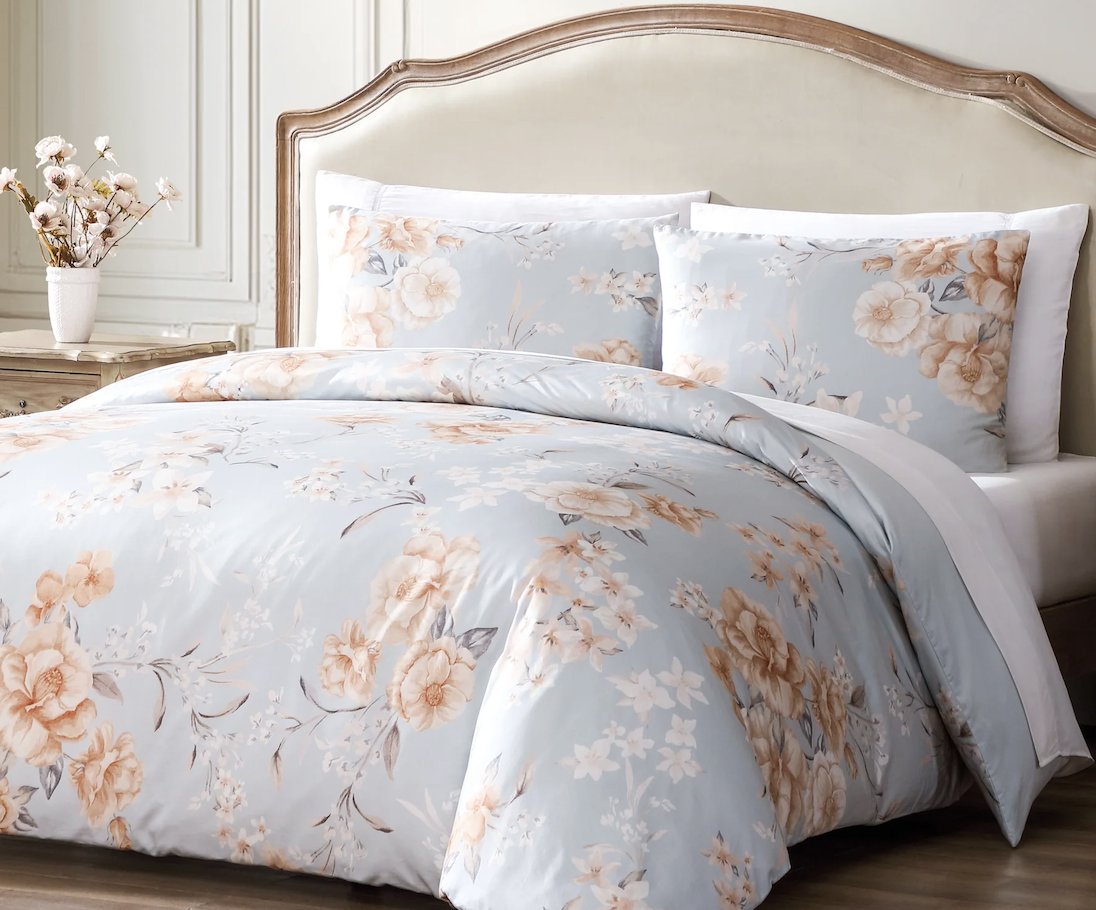
Care and Maintenance Tips
Both Egyptian and Pima cotton require proper care to maintain their quality and longevity.
Here are some general care tips to keep your cotton items looking and feeling their best:
- Gentle Washing: Use a mild detergent and avoid bleach to preserve the fibers.
- Cold Water: Wash in cold water to prevent shrinking and maintain color vibrancy.
- Low Heat Drying: Tumble dry on low heat or air dry to protect the fabric.
- Avoid Overloading: Do not overload the washing machine to allow thorough cleaning.
- Ironing: If necessary, iron on a low setting to smooth out wrinkles.
Pure Parima is proud to offer award-winning quality.
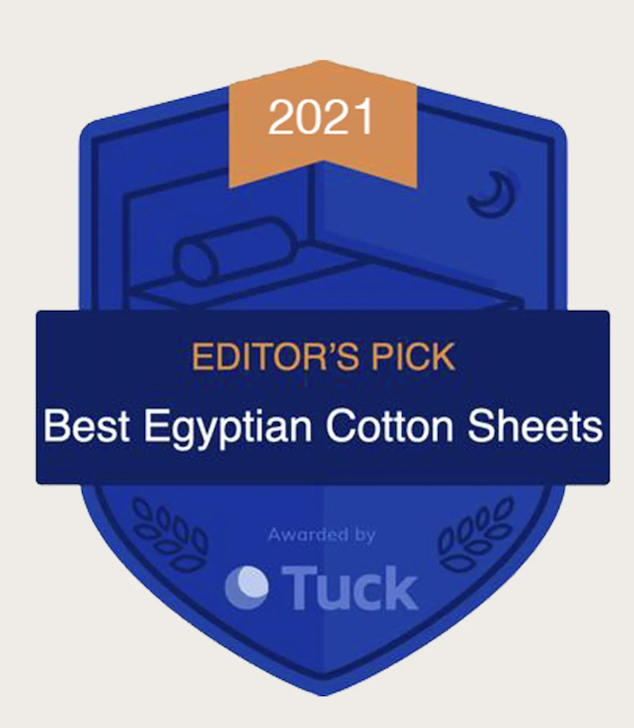
Which Cotton is Best? Egyptian Cotton From Pure Parima
Choosing the right cotton for your needs can significantly enhance your comfort and satisfaction. Egyptian cotton offers unmatched luxury while Pima cotton provides excellent quality at a more affordable price. The subtle differences may be important to the informed buyer. Here at Pure Parima, we recognize that investing in high-quality bedding should give you a product that performs and lasts for a long, long time.
That is why we offer the best of the best - Certified Egyptian Cotton
Pure Parima is dedicated to offering high-quality Egyptian cotton products that deliver exceptional comfort and durability. Trust us to provide you with the finest cotton bedding and accessories for a luxurious sleep experience.
Checkout our collections at Pureparima.com
